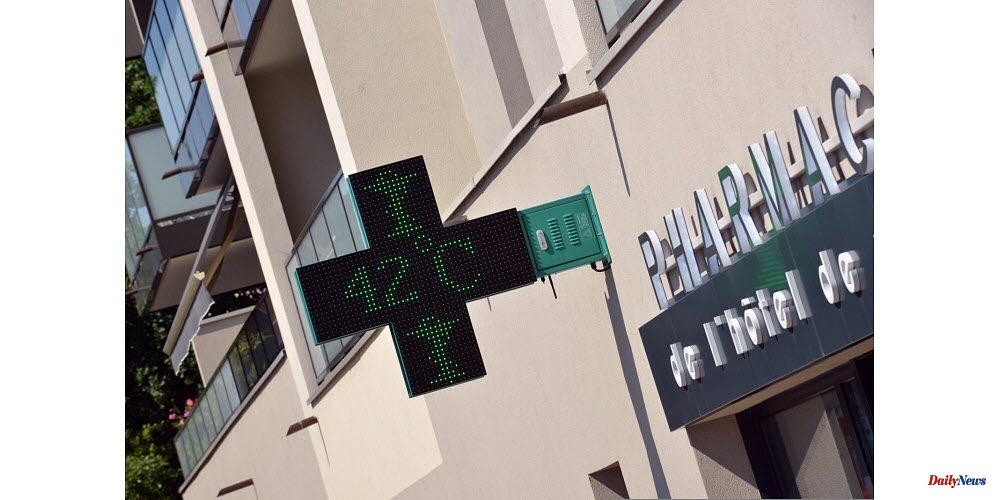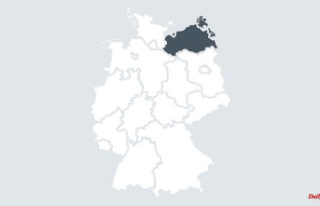The heat wave alert was placed by departments in June, one week before summer. This phenomenon is unprecedented in its rapidity and demonstrates that heat episodes are also more frequent, longer-lasting, and more intense.
Guillaume Sechet, Meteorologist at BFM-TV, is not afraid to express his concern.
What is the future?
Just to check if the record French thermal index of July 25, 2019, was going to be broken, it was 29.5degC that day, making it the hottest day on record in France. Here we expect 28.8. We are now below the average temperature, but we still expect higher temperatures than what was expected. Even if it stays below, remember that it isn't even summer yet. It's incredible.
Do you have any doubts about the Sunday end of the show?
Exactly. This is the main question of the day. Even if the heat wave ends Sunday with cooler ocean air arriving, the Saharan flow will still have difficulty evacuating. The flow behind is too weak to allow rockers to move quickly. It could continue on Monday and Tuesday...and even return up north, perhaps until the end next week.
This is a risky situation?
Yes. We had only a 1 in 5 chance of it happening up until now. But this is the majority scenario. Given the intense heat from North Africa, it doesn't surprise that this is happening. Weather models are starting to underestimate the effects of global heat. It is becoming increasingly intense and widespread. It's almost as if the weather models are not equipped to deal with these extreme temperatures. It's scary to venture into an unknown territory. It is unknown how the area will develop. These are climates we don't know about.
It is even cooler and shorter than 2003's heat wave.
2003 saw the first ever monstrous heat wave at a level that we hadn't seen before. We have now had two more intense heat waves in 2019, with many records set. This is a huge achievement! Even more amazing is the fact that this historic heat wave occurred only two years ago. After a very mild, dry winter and spring, we now have a new one. All across Europe, heat settles faster.
We actually trivialize heat waves. Do we ever get used to it then?
We hear it all the time, for months or even years. "... Although I don't wish to make anyone feel guilty, there is still a problem. There have been many sunny, dry, and calm days over the past two years. It's not as dramatic as a heat wave in winter, but it's neither good nor normal. Water reserves can only be replenished in winter. These are the same signs as when the weather is pleasant, mild, and dry day after day, like during the first confinement.
Are records still being broken?
We will first reach and surpass 40 degrees Celsius, something that has never been possible so early in the year. The earliest temperature of 40 degrees Celsius was recorded in Prades on June 21, 2003. Yes, we will set monthly records in the west, most likely over half of France. Some of these records will likely fall in the west, even though they are at all-time highs. Even if they aren't many, even if it is played at just a few tenths, most are August or July records and will be gone by mid-June. It is very alarming.
You seem to be very concerned about the future.
It is important to understand that the current phenomena, already intense, would have been even more severe if it had happened in July or August. We are now entering a new age. It is amazing to see the connection between events. I was wondering why the Azores anticyclone is going north lately. We discovered that the subtropical anticyclone known as Hadley cells which circumnavigates the globe, is approximately 1000 km north of the 1980s. Worldwide. It's been growing rapidly since 2015. It's scary. There is a disruption in the air flow circulation at the surface of the planet. Since this autumn, Europe has seen a shift in the direction of easterly currents and away from disturbed westerly ocean currents. Phenomena like El Nina last much longer.
How does it translate concretely?
Blockages can appear that last months or even years, something that was rare before. There was an alternation between hot/cold and dry/humid... But now, there are successions of hot/hot/hot with temperatures that barely drop below normal. Everything is upside down on a global scale. There are episodes of extreme heat all around, and they happen constantly. Of course, there have always been episodes of high heat. Today, there are many more, longer, more frequently, and more intensely.












